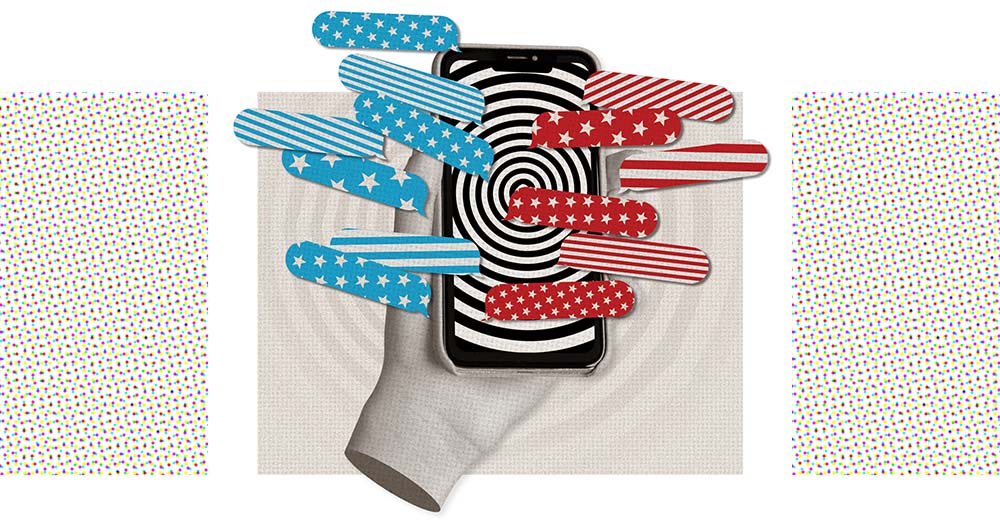Iowa Course Examines Social Media’s Influence on Politics
 PHOTO ILLUSTRATION: NICK BEECHER
PHOTO ILLUSTRATION: NICK BEECHER
Social media apps such as Instagram and TikTok not only churn out celebrity gossip and memes—they have also become major sources of information on politics. Recently, University of Iowa students in the Introduction to Social Media and Politics course explored the role such platforms have played in U.S. politics this presidential election year.
According to Broderick DeBettignies (14BA, 23MA), a political science graduate student who taught the course this past summer, social media has increased political polarization through its use of algorithms designed to continually give users content similar to what they have previously engaged with. He says this reinforcement of views can create echo chambers and lead to more extreme policy positions.
“Now, I can see, ‘Oh, my friend from high school has different political views than me. Let me mute them or unfriend them,’” he says. “You have to be willing to put in the time and effort to look for the other side of the argument.”
Political science professor Caroline Tolbert, who developed and supervises the UI course, says this polarization only compounds during a presidential election year in which most Americans will receive their political information online. According to Tolbert, the online political landscape suffers from a “lack of civility,” which favors personal attacks over pure political debate. DeBettignies adds that “political misinformation has become a huge thing. People can just get on [social media] and say whatever they want, regardless of truth value.”
However, social media also has led to some positive developments. According to Tolbert, online platforms have been used to help voters become more quickly and widely informed, as well as more deeply engaged. Furthermore, DeBettignies says social media has created a direct line of communication between politicians and citizens, so politicians no longer “have to go through gatekeepers to share their political information with viewers.”
The trick for viewers, including DeBettignies’ students, is to learn how to carefully navigate through a sea overflowing with information—not all of which is true.
Identifying political bias online requires one to actively seek out both sides of any given issue, according to DeBettignies. “If you see something that’s clearly partisan in one direction, it’s then incumbent on you as an individual to look at some of these nonpartisan sources, things that won’t be as biased in one way or the other, to try to get a complete picture of that,” he says.
